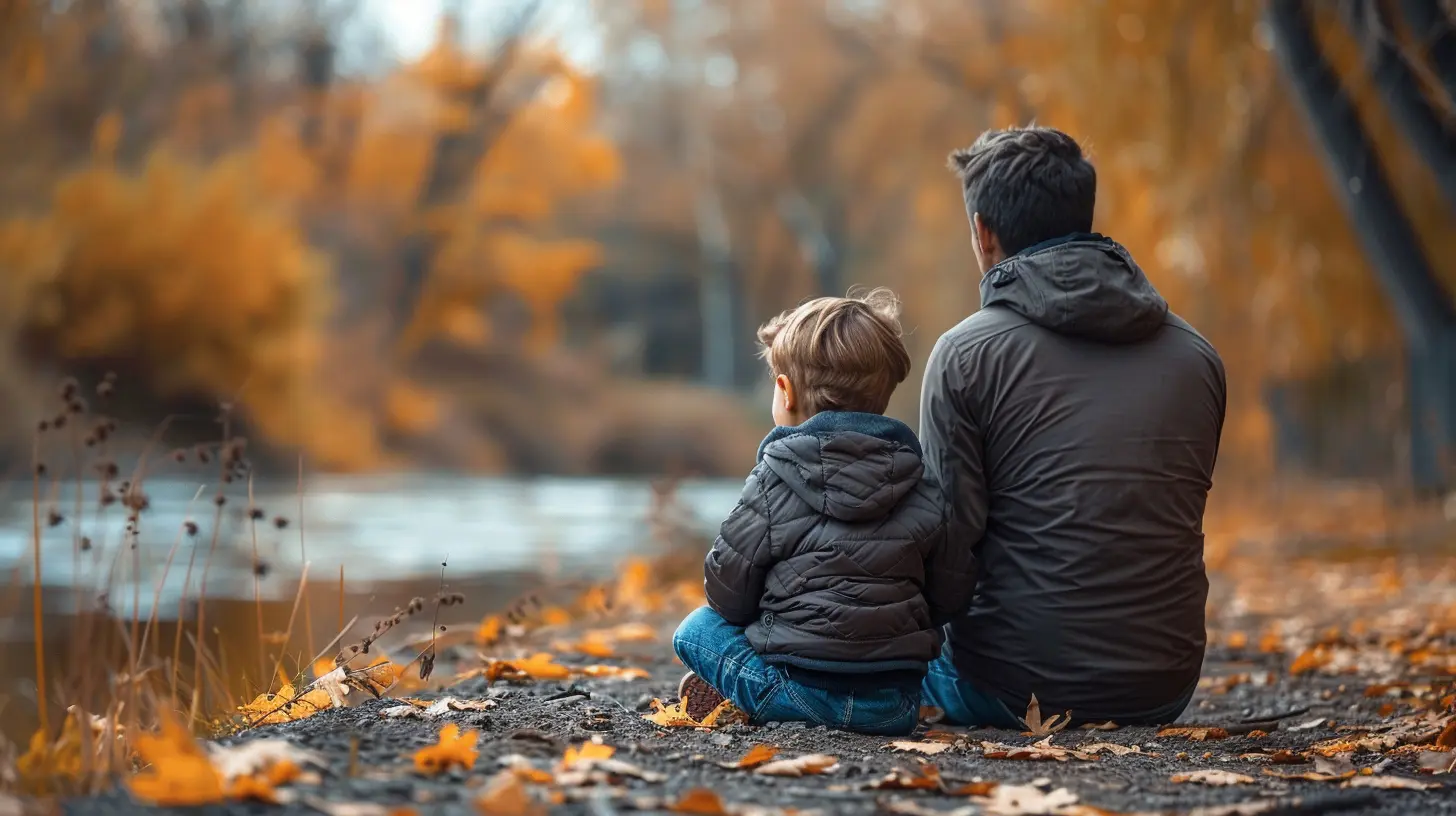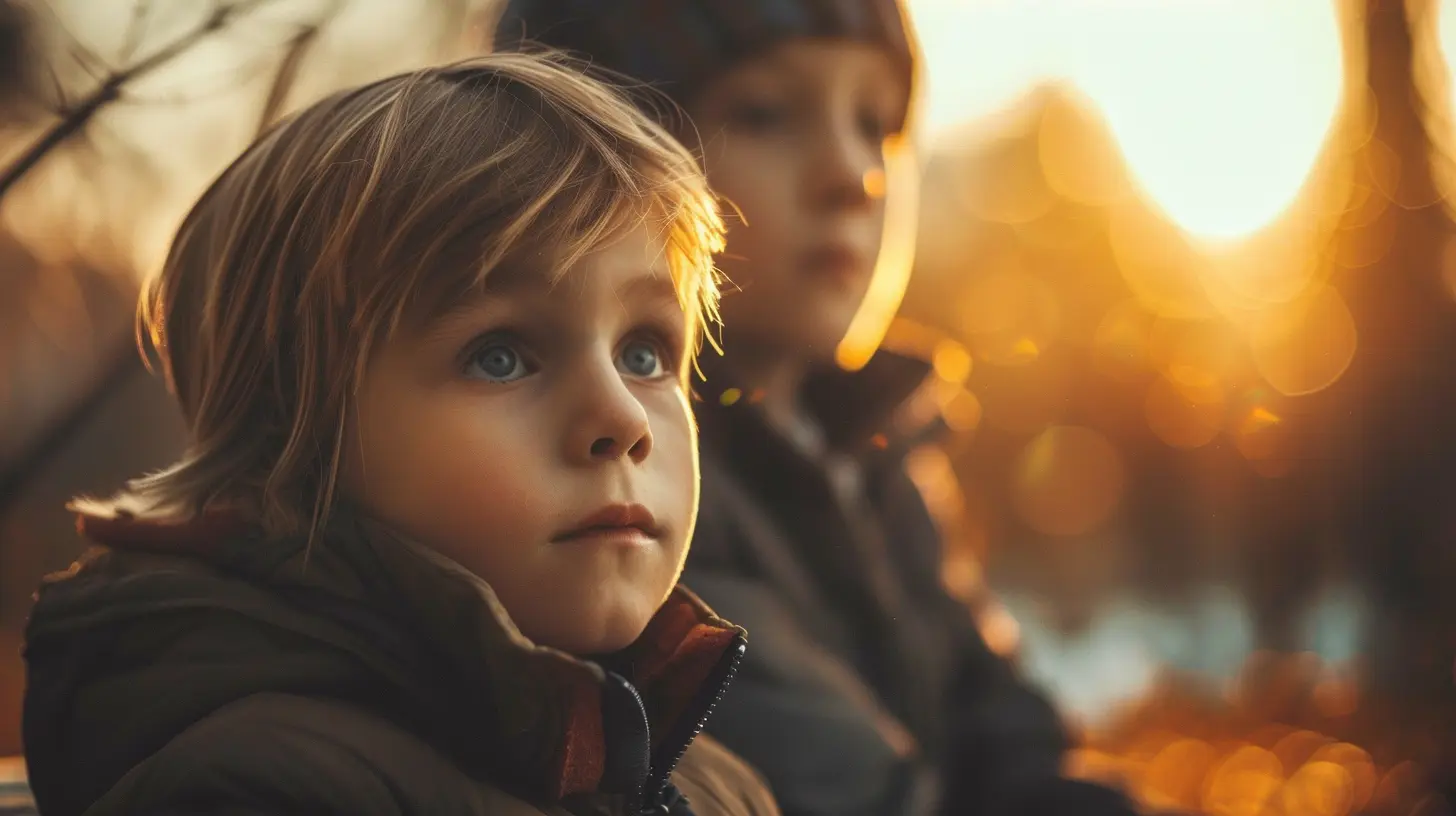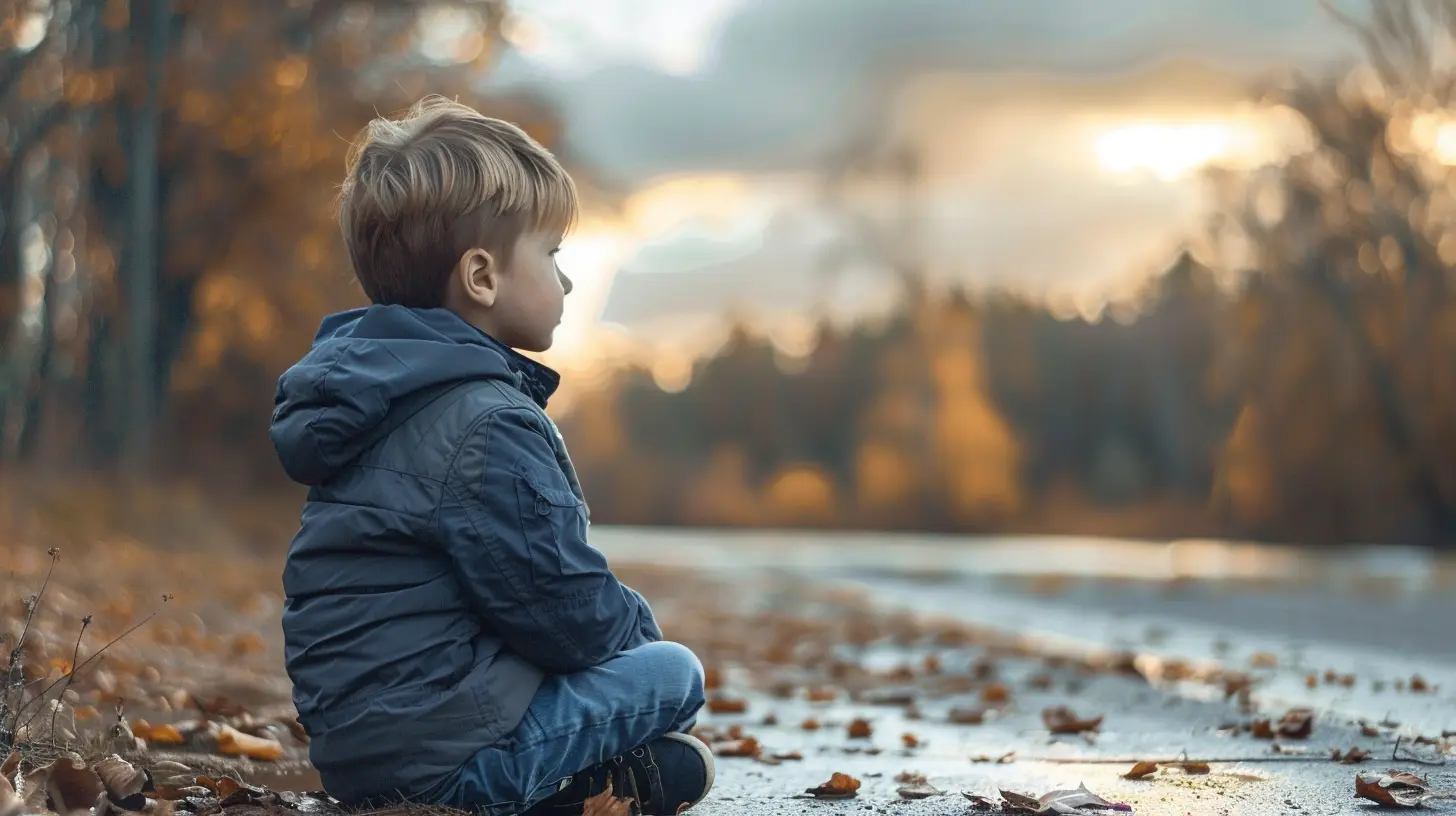The Impact of Divorce on Child Psychology and Well-Being
23 September 2025
Divorce is never easy, especially for children caught in the middle. It’s like pulling apart a puzzle where the pieces don’t quite fit the same way anymore. While separation may be the best option for some families, it can leave a lasting impact on a child’s emotions, mental health, and overall well-being.
So, how does divorce affect kids, and what can parents do to help them navigate this challenging transition? Let’s dive in. 
How Divorce Affects a Child’s Emotional Well-Being
Divorce can shake the very foundation of a child’s world. Their sense of security and stability often feels like it's crumbling, leading to a rollercoaster of emotions.1. Feelings of Guilt and Self-Blame
Many children, especially younger ones, mistakenly believe they’re the reason for their parents' split. They might think, "Did I do something wrong?" or "Maybe if I behaved better, they’d still be together." This guilt can weigh heavily on their minds, affecting their self-esteem and emotional health.2. Anxiety and Uncertainty About the Future
Kids thrive on routine and predictability. When divorce enters the picture, their world suddenly becomes uncertain. They worry about where they’ll live, how often they’ll see each parent, and if their life will ever feel "normal" again. This uncertainty can lead to heightened anxiety.3. Increased Sadness and Depression
Divorce can trigger deep feelings of sadness, loneliness, and even depression. Children may withdraw from friends and activities they once loved, struggling to process the emotional turmoil they’re experiencing. Some may even show physical signs of stress, like headaches or stomach aches.
The Psychological Impact of Divorce on Children
Divorce doesn’t just affect a child emotionally—it can also leave lasting psychological effects that shape how they view relationships, trust, and even their self-worth.4. Difficulty Trusting Others in Relationships
Children of divorced parents may develop trust issues, fearing that relationships are fragile and temporary. When they grow older, they might struggle with commitment, constantly worrying that love won’t last.5. Academic Performance and Concentration Issues
When a child’s home life is in turmoil, it can spill over into their school life. Many children of divorced parents experience difficulty concentrating, leading to a drop in grades and academic performance. Their minds are often preoccupied with family problems rather than classwork.6. Behavioral Changes and Acting Out
Some children cope with divorce by acting out. They may become more rebellious, disobedient, or even aggressive. Others might exhibit withdrawal behaviors, becoming unusually quiet and reserved. This shift in behavior often stems from emotional distress they struggle to express.
Parental Conflict and Its Effect on Children
Divorce itself isn’t always what harms kids the most—it’s the conflict between parents that leaves the deepest scars.7. Exposure to Ongoing Arguments
When parents continue to fight even after separation, children become caught in the crossfire. Constant exposure to conflict can make them feel like they need to "choose sides," leading to emotional stress and confusion.8. Feeling Like a Messenger Between Parents
Some parents unintentionally put their child in a difficult position, making them relay messages between mom and dad. This role can be emotionally exhausting and unfair, forcing the child to navigate adult problems they shouldn’t have to handle.9. Fear of Abandonment
Children may develop fears of being abandoned by one or both parents, especially if one parent is less involved after the divorce. This can lead to attachment issues, making them overly clingy or hesitant to form deep connections in the future.
How Parents Can Support Their Child Through Divorce
While divorce is tough, parents play a key role in helping their children cope and heal. Here’s how:10. Keep Communication Open and Honest
Kids need reassurance. Be open about the changes happening, but keep explanations age-appropriate. Let them ask questions and express their feelings without fear of judgment.11. Maintain Stability and Routine
Children thrive on consistency. Try to keep their daily routines as normal as possible—whether it’s school activities, bedtime rituals, or family traditions. Stability helps them feel secure despite the changes.12. Encourage Healthy Emotional Expression
Let your child know it’s okay to feel sad, angry, or confused. Encourage them to talk about their emotions rather than bottling them up. If they struggle to express themselves, creative outlets like drawing, journaling, or music can help.13. Avoid Speaking Negatively About the Other Parent
No matter the circumstances, badmouthing the other parent can be incredibly damaging. Kids should never feel like they have to choose between the two people they love most. Keep conversations respectful and focus on co-parenting in a healthy way.14. Seek Professional Support if Needed
Sometimes, children may need extra help coping with divorce. Therapy or counseling can provide them with tools to process their emotions in a safe and supportive environment.The Positive Side: Can Divorce Benefit Children?
Believe it or not, divorce isn’t always a negative experience for children. In some cases, it can lead to a healthier, more peaceful environment.15. Less Exposure to Toxic Conflict
If the marriage was filled with constant fighting, yelling, or even abuse, divorce can actually be a relief for children. A calmer household can help them feel safer and more secure.16. Stronger Parent-Child Relationships
After divorce, some parents become more intentional about spending quality time with their kids. This can strengthen bonds and create deeper, more meaningful relationships.17. Building Emotional Resilience
Going through a tough experience like divorce teaches children resilience. They learn how to adapt to change, navigate emotions, and find inner strength—valuable life skills they’ll carry into adulthood.Final Thoughts
Divorce is tough, no doubt about it. But while it can leave emotional scars, it doesn’t have to define a child's future. With love, support, and open communication, children can heal, adapt, and even grow stronger from the experience.As parents, the most important thing you can do is reassure them that they are loved—by both parents—no matter what. Because at the end of the day, love and stability matter more than a perfect family structure.
all images in this post were generated using AI tools
Category:
ParentingAuthor:

Jenna Richardson
Discussion
rate this article
1 comments
Kairoth Mendoza
This article offers valuable insights into how divorce affects children's psychology, highlighting the importance of supportive environments during such transitions.
September 29, 2025 at 4:20 PM

Jenna Richardson
Thank you for your comment! I’m glad you found the insights valuable and agree on the importance of supportive environments for children during such transitions.


